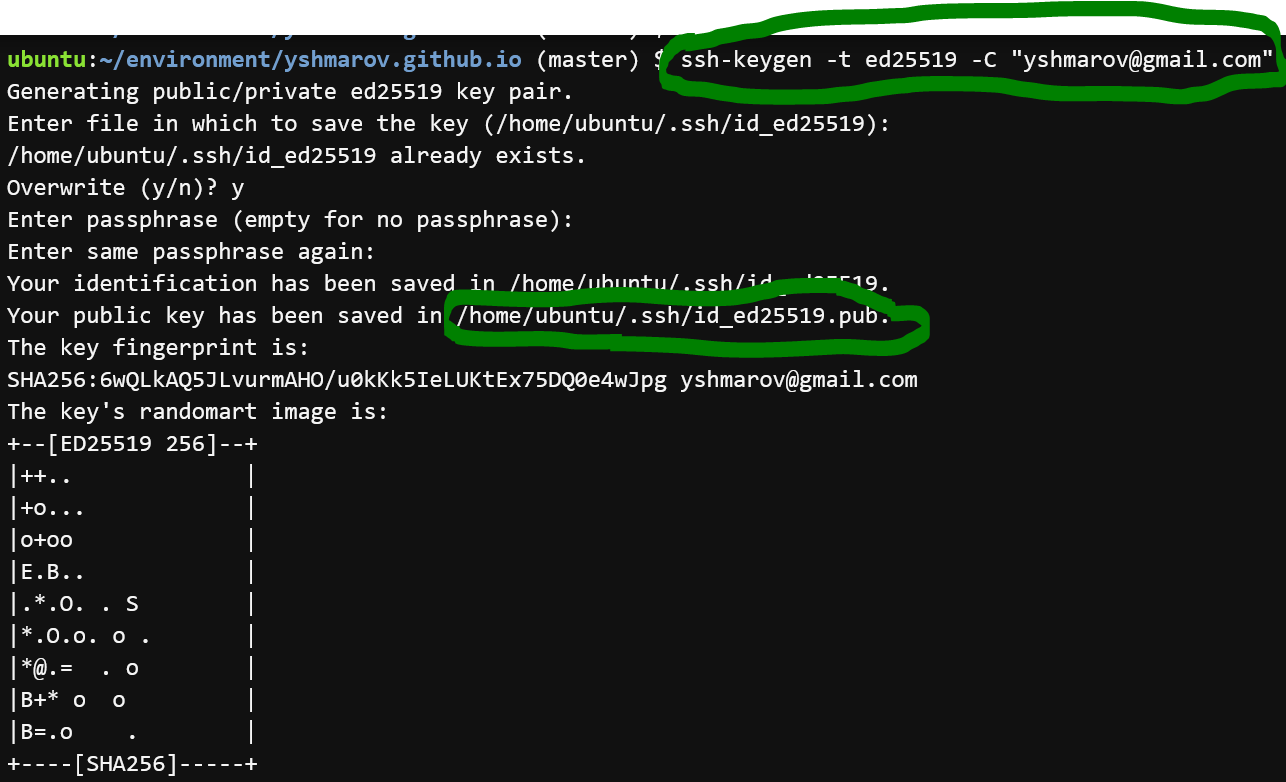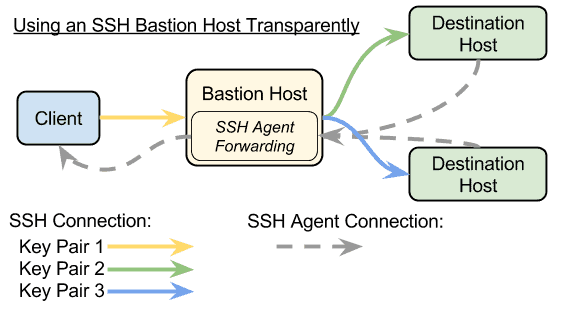- How to Add an SSH Key to CircleCI.
- 2:45 How to add SSH keys to a remote computer. 7:19 How to use SSH authentication agent and avoid typing you ssh key passphrase many times.
- Adding Your Ssh Key To The Ssh-agent
- Adding Ssh Key To Ssh Agent Software
- Adding Ssh Key To Ssh Agent Free
ssh-add is a helper program for ssh-agent.
ssh-add adds RSA or DSA identity files to the ssh agent. For ssh-add to work properly, the agent should be running, and have the SSH_AUTH_SOCK environment variable set.
About Press Copyright Contact us Creators Advertise Developers Terms Privacy Policy & Safety How YouTube works Test new features Press Copyright Contact us Creators.
1. Fix “Could not Open” Error (and Add Default RSA/DSA identities)
By default, when you try to execute the ssh-add command, you might get “Could not open a connection to your authentication agent.” error message as shown below.
The reason is ssh-agent is not running.
But, if you start the ssh-agent as shown below, you’ll still get the same error.
In order to fix the issue, you should start the ssh-agent as shown below. Mods for farm simulator 2015 mac.
Now, when you execute the ssh-add, it will add the ~/.ssh/id_rsa, ~/.ssh/id_dsa and ~/.ssh/identity files to ssh-agent, and will not throw any error message.
2. Display the entries loaded in ssh-agent
Use either -l or -L as shown below to display all the RSA and DSA entries that are currently loaded into the ssh-agent.
The following examples shows that there are two entries currently loaded to the ssh-agent.
3. Delete all entries from ssh-agent
Use option -D as shown below to remove all the ssh entries from the ssh-agent.
4. Delete specific entries from ssh-agent
Using -d option, you can specify exactly what entries you like to delete.


The following example will remove only the default RSA entry from the ssh-agent.
5. Lock (or) Unlock the SSH Agent
You can lock the ssh agent as shown below using -x option. Once you lock the agent, you cannot add, delete, or list entries in the ssh agent without a password.
Adding Your Ssh Key To The Ssh-agent
After locking, if you try to add, you’ll se SSH_AGENT_FAILURE message as shown below.
To unlock an agent, use -X option as shown below. Make sure you enter the same password that you gave while locking the agent. If you give a wrong password, you’ll set “Failed to unlock agent.” message.
An SSH key is an access credential for the SSH (secure shell) network protocol. This authenticated and encrypted secure network protocol is used for remote communication between machines on an unsecured open network. SSH is used for remote file transfer, network management, and remote operating system access. The SSH acronym is also used to describe a set of tools used to interact with the SSH protocol.
SSH uses a pair of keys to initiate a secure handshake between remote parties. The key pair contains a public and private key. The private vs public nomenclature can be confusing as they are both called keys. It is more helpful to think of the public key as a 'lock' and the private key as the 'key'. You give the public 'lock' to remote parties to encrypt or 'lock' data. This data is then opened with the 'private' key which you hold in a secure place.
How to Create an SSH Key
SSH keys are generated through a public key cryptographic algorithm, the most common being RSA or DSA. At a very high level SSH keys are generated through a mathematical formula that takes 2 prime numbers and a random seed variable to output the public and private key. This is a one-way formula that ensures the public key can be derived from the private key but the private key cannot be derived from the public key.
SSH keys are created using a key generation tool. The SSH command line tool suite includes a keygen tool. Most git hosting providers offer guides on how to create an SSH Key.
Generate an SSH Key on Mac and Linux
Both OsX and Linux operating systems have comprehensive modern terminal applications that ship with the SSH suite installed. The process for creating an SSH key is the same between them.
1. execute the following to begin the key creation
This command will create a new SSH key using the email as a label
2. You will then be prompted to 'Enter a file in which to save the key.'
You can specify a file location or press “Enter” to accept the default file location.
3. The next prompt will ask for a secure passphrase.
A passphrase will add an additional layer of security to the SSH and will be required anytime the SSH key is used. If someone gains access to the computer that private keys are stored on, they could also gain access to any system that uses that key. Adding a passphrase to keys will prevent this scenario.
At this point, a new SSH key will have been generated at the previously specified file path.
4. Add the new SSH key to the ssh-agent
The ssh-agent is another program that is part of the SSH toolsuite. The ssh-agent is responsible for holding private keys. Think of it like a keychain. In addition to holding private keys it also brokers requests to sign SSH requests with the private keys so that private keys are never passed around unsecurly.
Before adding the new SSH key to the ssh-agent first ensure the ssh-agent is running by executing:
Once the ssh-agent is running the following command will add the new SSH key to the local SSH agent.
The new SSH key is now registered and ready to use!
Generate an SSH Key on Windows
Adding Ssh Key To Ssh Agent Software
Windows environments do not have a standard default unix shell. External shell programs will need to be installed for to have a complete keygen experience. The most straight forward option is to utilize Git Bash. Once Git Bash is installed the same steps for Linux and Mac can be followed within the Git Bash shell.
Windows Linux Subsystem
Modern windows environments offer a windows linux subsystem. The windows linux subsystem offers a full linux shell within a traditional windows environment. If a linux subsystem is available the same steps previously discussed for Linux and Mac can be followed with in the windows linux subsystem.
Summary
Adding Ssh Key To Ssh Agent Free
SSH keys are used to authenticate secure connections. Following this guide, you will be able to create and start using an SSH key. Git is capable of using SSH keys instead of traditional password authentication when pushing or pulling to remote repositories. Modern hosted git solutions like Bitbucket support SSH key authentication.




